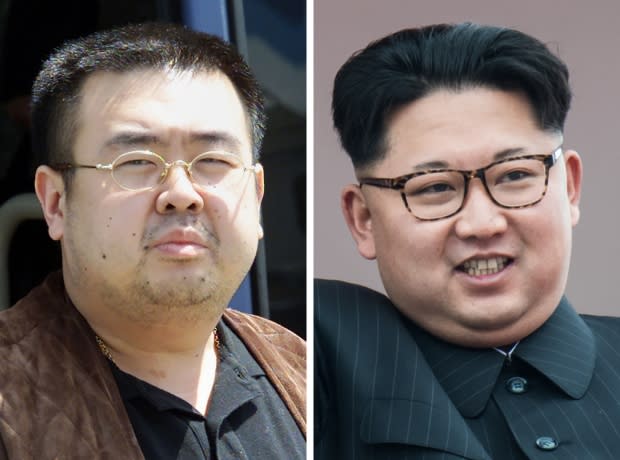Jamal Khashoggi's tragic end is a wake-up call about the dangers faced by dissidents in exile
The tale of the murder of journalist Jamal Khashoggi is a global reminder of the ghastly, blood-soaked dynamic of vicious authoritarian regimes like that of Saudi Arabia.
Despotic states with capable intelligence apparatuses hold deep grudges against dissidents, and they can go to any length to silence them no matter where they go and live in exile. The Firqat el-Nemr or "tiger squad" — a hit team of Saudi agents — is believed to be behind the savage murder of Khashoggi in Istanbul.
The squad is said to have been expressly set up by Crown Prince Mohammed bin Salman to assassinate Saudi dissidents wherever they may reside. Indeed, there are reports of lesser-known instances where Saudi intelligence agents trapped and swooped up Saudi dissidents from France, Switzerland, Morocco and the United Arab Emirates.
Poisoning of Kim Jong-nam
Such clandestine operations in violation of international law are not unique to Saudi Arabia. In February 2017, the world witnessed the horrific killing of Kim Jong-nam, the half-brother of North Korea's tyrant Kim Jong-un, in Malaysia through a VX nerve agent poisoning.
North Korea has an extraordinary record of carrying out assassinations of its own citizens abroad who defected to South Korea or the West. In October 2017, the slain Kim Jong-nam's son, Kim Han-sol, was also targeted for killing in China but the hit squad was busted by Chinese authorities.

China itself is a proven master at targeting its citizens living outside the mainland. In January 2017, China's security agents abducted the Chinese-Canadian billionaire Xiao Jianhua, who fell foul of the Communist Party leadership, from Hong Kong. They rolled him in a wheelchair with a sheet shrouding his face, loaded him onto a boat and ferried him to the mainland.
Countless other Chinese opponents of the Communist Party have been hunted down and abducted in Thailand, Vietnam and Myanmar and rendered back to the mainland to disappear into the maws of the police state's politicized judicial system.
Western attention has focused a lot on Russia's poisoning of its former spies in Britain, including Alexander Litvinenko in 2006 and Sergei Skripal in 2018. But China's global kidnapping, harassment and intimidation campaigns against its own dissidents who have sought shelter abroad is occurring on an industrial scale. One Chinese exile based in Canada, Sheng Xue, remarked on Communist China's long arm, saying, "They are here, their people, their network, their power, and everything is here."
Worse, China openly boasts about how its "Fox Hunt" dragnet to nab corrupt Chinese citizens abroad has ensnared countless number of people. It's anyone's guess as to how many of those victims are tax evaders and how many are political dissidents, but what's clear is that China leads the world in having the capability to unlawfully surveil, kidnap and harm its citizens overseas.
A much smaller but no less intrepid autocracy that has also taken on targeted monitoring, abductions and killings of dissidents abroad is Rwanda. Under the dictatorship of President Paul Kagame, a ruthless foreign intelligence operational force has been built up to tail dissidents and abduct or bump them off.
Rwandan critics of Kagame have been murdered while residing in Kenya, South Africa, Mozambique and Uganda. Canada's Border Services Agency has reported on how Rwandan spies and their instruments have mounted "subversive actions" on Canadian soil against Rwandan exiles.

This all goes to show that be it Saudi Arabia, North Korea, China or Rwanda, there is a common thread running through these globalized state terror machineries: dictatorships do not accept dissent, even if it has settled far away from their shores. At home, tyrannical regimes are meticulous in crushing civil and political rights with force and propaganda. But that doesn't stop them from acting on the hate and fear they reserve for exiled critics who are seen as "traitors" to the nation, absconding from the laws that uphold the dictatorship.
The brazenness and ruthlessness of the execution of Saudi journalist Jamal Khashoggi gives us a glimpse of how much draconian states despise dissidents. Democratic countries, which often host political fugitives fleeing murderous regimes like that of Saudi Arabia, should prepare to counter the threat these refugees or exiles face even after they have secured asylum or permission to live in relatively safer environments.
The Khashoggi case is also a reminder of declining moral standards in the international community — particularly on the part of the United States, with a White House that appears largely disinterested in holding Saudi Arabia accountable, and Turkey, which is skillfully using this incident to extract concessions from Saudi Arabia.
Khashoggi's tragic end is a wakeup call about the endangered condition of dissidents in exile. Above all, it is a lesson about rising global impunity on the part of criminal dictatorships, which is something that must be exposed and confronted. Failure to stop this menace means that the arbitrary violence of authoritarian states will creep — indeed, will continue to creep — into the heart of democracies, acting as a destabilizing plague.
This column is part of CBC's Opinion section. For more information about this section, please read this editor's blog and our FAQ.

